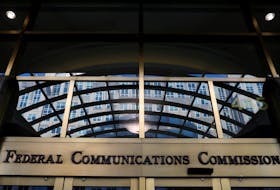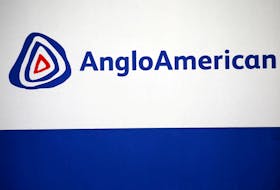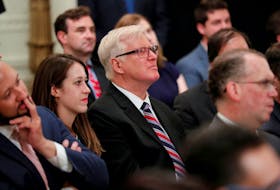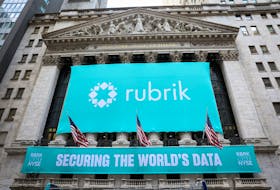A long period of ups and downs
The 14 years between the 1969-70 and 1983-84 seasons was a period of ups and downs for the Corner Brook Royals.
In the 1970s Senior hockey in Corner Brook, and indeed throughout Newfoundland, returned to an almost purely amateur pursuit. The practice of importing semi-professional playing-coaches begun by Buchans in the late 1940s and the subsequent adoption of this strategy by all Newfoundland Senior Hockey League (N.S.H.L.) teams in the following two decades had virtually come to a standstill by the early 70s.
The N.A.H.A.'s renewed emphasis on amateur competition and the further development of provincial Minor hockey, as well as the heavy financial burden incurred by several N.S.H.L. clubs were the prime factors which contributed to this change. Corner Brook's entry came to depend almost entirely on local talent, a far cry from the import-ladden, chronically indebted squads of the previous ten years.
The successes the Royals had formerly enjoyed with players like Orin Carver, Clobie Collins, Harry Katrynuk, and Reg Asselin declined as well. The team could no longer dominate the league as before and they were often left scrambling to stay out of last place. However, there were highlights for the Royals. The wily veteran (Danky) Dorrington captured his second and third scoring championships in 1972-73 and 1973-74, and the Royals won the Herder Memorial Trophy in 1976-77.
By the early 1980s the Royals organization had fallen more heavily into debt than ever before and had to keep the team out of the league for two full seasons in order to make up most of what was owed, but they returned in 1983-84 with a new crop of imports and a renewed desire to win the Herder and compete in the national Allan Cup playoffs.
Minor hockey expanded throughout Newfoundland during this period. Programs for children and teenagers sprung up all over the island, cementing the sport's popularity.
On the west coast smaller centres like Stephenville, Port Aux Basques, Deer Lake, and St. Anthony competed against Corner Brook in regional Minor tournaments on a regular basis. The increase in competition and the desperate need for ice time for Corner Brook's more than 700 Minor Leaguers necessitated the construction of a second rink.
Thanks to the efforts of the local Kinsmen Club enough money was raised and during the 1974-75 season the aptly named Kinsmen Arena was opened. According to the city's excellent showings in Minor tournaments in subsequent seasons, the rink more than fulfilled its purpose.
Finally, Junior hockey and the local Intermediate League achieved a level of consistency and stability unheard of since the early days of Humber Gardens. In local play and Western Junior League competition, the former helped to bridge the long-running and conspicuous gap between Minor and Senior level hockey as well as condition prospective members of the Royals, and the high scoring, often nail-bitingly close, Intermediate League playoffs even managed to arouse fan interest like the local Senior matches of the 1950s had.
Within Corner Brook, the 1970-71 season was made up of Minor, Junior, High School and Commercial League hockey. Early on there were plans for a Humber Valley Intermediate League to play out of the Hodder Memorial Stadium in Deer Lake but low player interest curtailed the organizers efforts. The Curling Rangers provided the only Intermediate action with a brief stint in the Provincial "B" Intermediate tournament in which they were eliminated early.
In the hotly contested Commercial League regular season Stan Dawe came out on top, but they were defeated in the championship playoff series by Andrews Auto Supplies. Only one High School series took place and Herdman downed Regina to take the City Motors Trophy. Over 750 boys registered for Minor hockey in the city at this time. With such large numbers and only one ice surface available for all forms of hockey it had become clear that another rink was required.
Tentative planning for Corner Brook's second arena began in 1970 with a projected completion date of 1975 or 76. On Minor Hockey Day the PeeWees, Bantams, and Midgets beat similar teams from Grand Falls, and the Junior Royals walloped the Feildians from St. John's. In the traditional season ending provincial "A" tournaments, only the Bantam all-stars won a championship.
The PeeWees and Midgets finished out of contention. Also, for the first time in its troubled history Junior hockey was brought under the jurisdiction of the C.B.M.H.A. with the hopes that the Minor organization could form a stable league and pay more attention to it than the C.B.H.A. who had their hands full with the Royals. Three teams made up the league; the junior Monarchs, Rangers, and North Shore All-Stars.
The Curling Rangers finished first in the point standings and in the best 3 of 5 final series they came back from two games down to beat the West Side Monarchs. For the final two games over 1,000 spectators attended, a feat generally reserved for N.S.H.L. contests. The best Junior players went on to form the Junior Royals. They were successful in exhibition and in the provincial semi-finals where they beat the Grand Falls Junior Cataracts, but in the Veitch Trophy finals versus the Capitals they were downed two games to one.
Only four Senior teams signed on for the provincial league that year; the Royals, Capitals, Flyers, and Cararacts. Early on there was controversy over the N.A.H.A.'s decision to allow all four teams in the playoffs, but eventually all teams agreed to a 36 game regular season followed by a 12 game round robin with the best two teams meeting in the Herder finals. Sports writers and fans pegged the Royals as underdogs at the beginning of the season due to the absence of several of their best players (including George Faulkner), but player-coach (Danky) Dorrington had a strong local contingent behind him.
Throughout the 36 game schedule players like Doug Grant, Ernie Hynes, and Bram Pike came up big time and time again for the Royals allowing them to finish second overall behind St. John's. The subsequent round robin was a different story altogether. The runner-up Royals faltered and came dead last, ending yet another year without even a shot at the Herder.
If the 70-71 season was disappointing for the Royals 1971-72 was utterly disastrous. With star goaltender Grant attending university and playing for the Memorial Beothuks and Dorrington playing only home games, the organization was in dire straits indeed. Jim Guy took up the player-coach position and when it became clear early on that the Royals were in for a hard time the C.B.H.A. imported three "strengthening players" from the mainland but the move made little difference.
JIM GUY
On one occasion, after a pair of humiliating losses at Memorial Stadium, Capitals general manager Ewart Hillyard berated the Royals on their overall "amateur" style of play: "Even with three of our big players out we still shellacked them. That'll give you some idea of the kind of team they sent in here. It's ridiculous, you can't blame the fans for not coming down to watch that garbage."
Alex Faulkner, who suffered a broken ankle during game two, said, "The Corner Brook Hockey Association should be ashamed of themselves for sending in a bum team like that. It's a slap in the face to the N.A.H.A." In rebuttal, Joe Chaulk, the previous season's C.B.H.A. president, added more fuel to the fire. He argued that the Royals were in transition from a group of semi-professional players paid "under the table" to a truly amateur team. He added, "...I do recognize Hillyard's expertise in the field of garbage knowing that he has picked up quite a bit for his club over the years."
All the charged verbal sparring did not change the Royals on-ice performance however. They continued to lose and attendance at Humber Gardens sagged below 1,000 per game, threatening an even more critical financial problem.
The situation came to a head in mid-January in a weekend series with the Grand Falls Cataracts. Corner Brook was trounced in the first of two and coach Jim Guy proceeded to forfeit the second game on orders from the C.B.H.A. Claude Anstey, N.A.H.A. president, immediately suspended Guy for the remainder of the current season as well as the next, and C.B.H.A. president Frank Sheaves was barred for three years. Ed O'Quinn took over coaching duties and Ed Gosse was named acting president of the hockey association.
Two weeks later Gosse announced that the cellar dwelling Royals were roughly $5,000 in the red and that they were pulling out of the N.S.H.L. Anstey declared, "It's official now, they're out and that's it.", but the crisis was averted at the last minute when Ray Baird and a new executive assumed the leadership of the C.B.H.A. placing the team on a more stable financial footing. Baird was named president and the Royals were reinstated, but their record remained dismal. They finished the season 12 points behind the Capitals for last place. It was their worst showing since the N.S.H.L. had started its island wide schedule in the early 60s.
One event did take place that brought the fans out to Humber Gardens to see the Royals however. Amidst all the difficulties, a ceremony was held for Frank Dorrington in which he was honored for his 11 year contribution to the team. In fact, January 22nd was proclaimed (Danky) Dorrington Day.
Before the game against the Capitals Danky was presented with numerous gifts by people like Hugh Wadden and Orin Carver, star players of the 50s and 60s, and Newfoundland Premier Frank Moores. Between bursts of thunderous applause from the packed house, the four time Herder champion gave a brief acceptance speech in which he modestly attributed his success to his excellent teammates over the years.
| Heroes of the Past |
| The following is a list of players who performed for Corner Brook in provincial senior hockey competition since play for the Herder Memorial Trophy began in 1935. 1966-67 Royals: (Eliminated by Gander in the semi-finals) Frank (Danky) Dorrington (Playing-Coach), Tony Keough, Doug Grant, Ed (Diesel) Lawrence, Reg Asselin, Rollie Clarke, Mickey Walsh, Jake Critch, Ernie Hynes, Jim Guy, Bob Smith, Alex King, Clobie Collins, Ed O'Quinn 1967-68 Royals: (Herder Champions, defeated Buchans in five games) Frank (Danky) Dorrington (Playing-Coach), Jim Guy, Jake Critch, Alex King, Reg Asselin, Ernie Hynes, Francis Walsh, Ed Lawrence, Tim Rothwell, Bob Clarke, Foster Lamswood, Doug Grant, Joe Lundrigan, Jim Kennedy, Doug Sheppard, Ed O'Quinn 1968-69 Royals: (Failed to make the playoffs) George Faulkner (Playing-Coach), Frank (Danky) Dorrington, Jim Guy, Alex King, Reg Asselin, Jake Critch, Gus Shallow, Doug Grant, Rollie Clarke, Ed O'Quinn, Ed (Diesel) Lawrence, Jim Kennedy, Alex Blanchard, Jim Roche, Eugene Guy 1969-70 Royals: (Eliminated by St. John's in semi-finals) Frank (Danky) Dorrington (Playing-Coach), George Faulkner (Playing-Coach), Bram Pike, Jim Guy, Gerry Lahey, Ed (Diesel) Lawrence, Dave Woodward, Bobby Clarke, Ernie Hynes, Jim Kennedy, Doug Sheppard, Doug Grant, Jake Critch, Alex Blanchard, Ed O'Quinn, Jimmy Roche. |
Dorrington characteristically let his actions speak louder than his words as he accumulated 5 points against St. John's in the following Royals victory. The commonplace chant of "Go, Danky Go!" resounded throughout the game.
Locally, Minor Hockey continued to attract scores of young boys.
The Corner Brook Midgets, Bantams, and PeeWees won their respective West Coast Minor Hockey Tournaments in January, but in the provincials "As" at the end of the season none of the teams made it to the finals. In the "B" Senior High School Hockey Championship series, Regina topped Herdman, and again in the sudden death "A" Championship Regina was victorious. Commercial hockey returned to Humber Gardens for another year as well.
Clark Trading were top point getters in the regular season, but the Black Horses, who finished third in the standings, surprised everybody by winning the playoff championship.
The Junior League was presided over by the Minor Hockey Association for the second season in a row. Humbermouth replaced Curling and the Monarchs and the North Shore All Stars returned once more. Close contests and several bench clearing brawls followed by hefty suspensions marked the regular season as the Monarchs took the top spot.
Rowdy play continued into the playoffs as the North Shore team swept the Monarchs four games straight in the final series. In provincial exhibitions the all-star Junior Royals beat the Port aux Basques Junior All-Stars in two games and the Deer Lake Junior Flyers and Junior Capitals once, but split with the Gander Juniors in a home and home series.
The young Royals also had a full slate of intra-provincial contests. They lost a game to the Moncton Junior Beavers but pulled out two wins versus the Sydney Junior Metros making them 7 and 2 in preseason contests. Unfortunately, their good fortune did not spill over into their quest for the Veitch Trophy. In the All-Newfoundland semi-finals they were eliminated by the Junior Capitals.
The Junior League was placed back in the hands of the C.B.H.A. during the 1972-73 season presumably due to the already large numbers that the C.B.M.H.A. had to deal with in the Minor Leagues. Four teams competed in the league: the Monarchs, Hawks, Rangers, and All-Stars and the West Side boys took both the regular season and playoff titles.
There was also a West Coast Junior Hockey League in which the Royals were pitted against Port aux Basques and Bay St. George. The top two teams were to advance to the provincial championship playoffs and Corner Brook came second behind the Bay St. George Huskies. In the island wide playoff the Junior Royals had their season cut short once again with a last place finish.
The see-saw rivalry between Herdman and Regina continued near the end of the season with Herdman winning both the "A" series three games, and one tie, to nothing, and the sudden death "B" match. The ailing Commercial League, down to only four teams, managed another season and Bowaters secured the regular season and playoff championships. Minor hockey had its problems as well.
The normal rhythm of Minor play was disrupted due to lack of ice and repairs being made to Humber Gardens. A new ice-making plant was installed into the nearly twenty year old structure and a new paint job, plexi-glass, and public address system complete with the stadium's first organ were also added. Eventually things got back to normal and the annual Minor Hockey Day and Minor Hockey Championship Night were as successful as ever.
However, Corner Brook Minor all-star teams continued to lose to other provincial squads. Neither the Midgets, Bantams or PeeWees made their tournament finals for a second straight year. It was clear that Minor hockey needed its own ice surface if the boys were to get the practice they needed to win against rival towns.
The history of hockey in Corner Brook, researched by Neil White for the Newfoundland and Labrador Hockey Hall of Fame covering the period from
the 1920s up to 1990.
The series of articles was first published in The Western Star from December
2000 to May, 2001.
To buy a reprint of this page as it appeared in The Western Star email [email protected]








